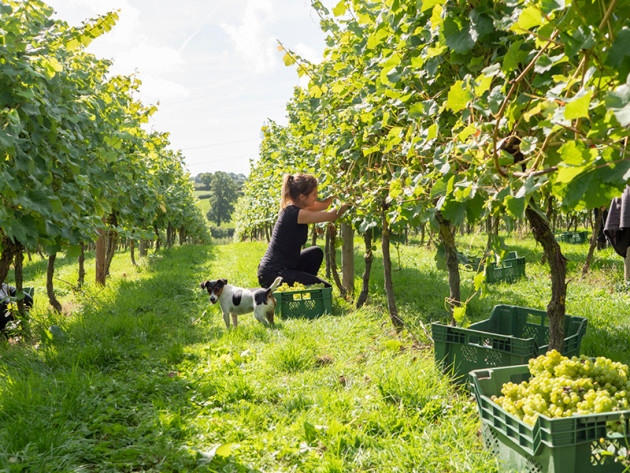
Planning causing barriers to UK wine tourism, finds report
A report by planning and development consultancy Lichfields suggests that UK wine tourism’s potential is being held back by planning challenges.
Cultivating Success – Planning for Wine Tourism & the Visitor, says a ‘one-size-fits-all’ approach doesn’t suit every winery site, especially when it comes to vineyards in protected environments, where “unique needs” must be considered.
Wine tourism currently accounts for £213m of the industry’s total £517m contribution to the UK economy and is growing rapidly as vineyards open up visitor experiences, cellar-door sales and events.
But, said Lichfields, a recent Wine GB survey ranked planning barriers among the top issues stalling this growth, as operators often need to navigate complex planning policies, even to offer basic visitor facilities like tasting rooms and farm shops.
Hannah Whitney, planning director at Lichfields, said: “Our findings highlight the need for a bespoke planning approach that reflects vineyards’ unique needs and environmental considerations. Vineyards are deeply integrated into the rural landscape and planning applications need to be adaptable. A more tailored, flexible strategy can allow vineyards to expand sustainably, providing significant rural economic benefits without compromising these valued landscapes.”
While some vineyard developments, like farm shops, can proceed under permitted development rights, Lichfields’ report finds that “these rights don’t cover many of the facilities central to wine tourism, such as visitor centres and overnight accommodation. For vineyards located in Green Belt areas or in National Landscape areas, obtaining planning permissions is often particularly challenging, despite their potential contributions to the local economy”.
Nicola Bates, CEO of Wine GB, which represents the UK wine industry, said: “Wine tourism provides invaluable income for our vineyards and supports rural employment, yet planning hurdles continue to limit growth opportunities. A collaborative approach, balancing growth with environmental considerations, is essential to realising the industry’s full potential.”
The report suggests that a thorough needs case, coupled with early engagement with local planning authorities, is critical for vineyards to secure permissions for visitor facilities. Lichfields also advises vineyards to participate in the Local Plan process to shape policies that can support long-term growth in wine tourism.
With the UK’s wine industry projected to add 50% more jobs by 2025, the report calls on planning authorities and vineyard owners to “adopt a cooperative, evidence-based approach that can accelerate sustainable growth in this rapidly maturing sector”.
To read the report’s findings and recommendations in full, click here.
Keywords:
- Cellar Door
- Vineyards
- development
- Wine GB
- planning
- Lichfields
- UK wine tourism
- green belt
- rural development




